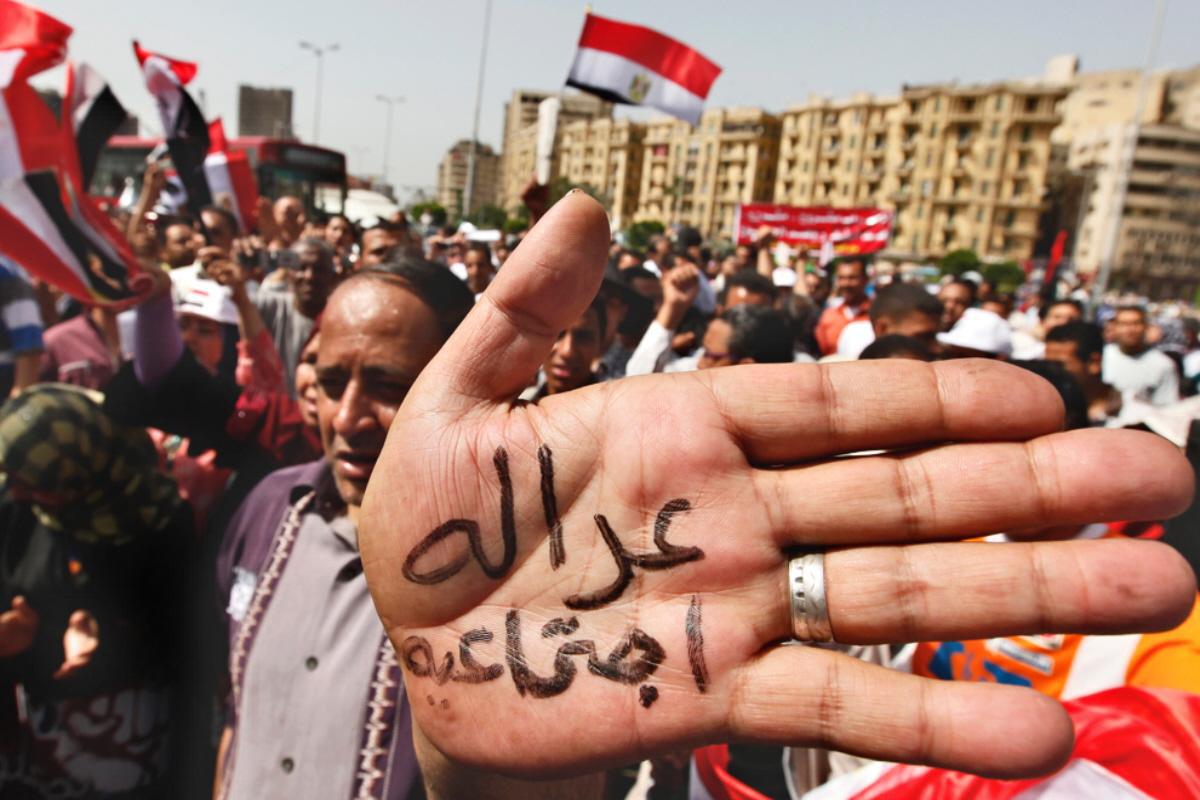
The past decade has been the most eventful and tumultuous in Egypt’s modern political history since the abolition of the monarchy in 1952. Ten years ago, the winds of change blew their first gusts in Tunisia, sweeping longtime dictator Zine El Abidine Ben Ali out of power.
Soon after, hundreds of thousands of protesters poured into the streets of Egypt, Libya, Syria, Bahrain and Yemen to demand an end to autocratic rule and political despotism.
In many Arab Spring countries, the protest movement left devastation in its wake. In Egypt, they triggered growing pains. Ten years since Egypt’s Friday of Wrath, Egyptian millennials, the first generation of Egyptians to ever experience self-determination, face political and economic uncertainty.
To amend the words of American journalist Lauren Bohn, this was the decade Egyptian millennials “learned the true meaning of bravery and, heartbreakingly, its limitations.”
But somehow amid the chaos, the heartache and backstabbing, new platforms and spaces emerged on the country’s political scene, giving rise to iconic figures from across the country’s social, cultural and political spectra.
From fierce idealists, to power players with substantial political cachets, all the way to moderates and pragmatists who have kept the ball rolling and the wheels turning, here are the names and faces that defined political life and culture in Egypt between 2010 and 2020.
Yara Sallam
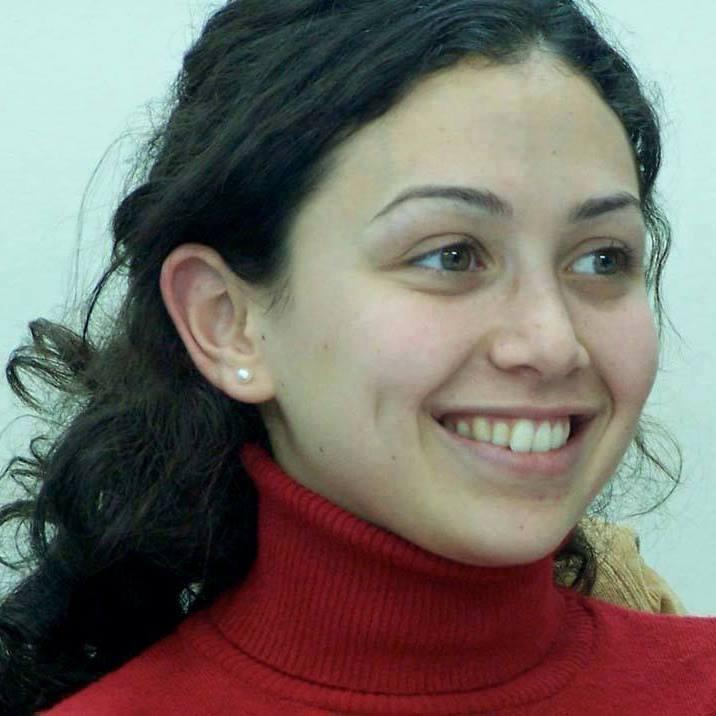
Yara Sallam is an icon of Egypt’s third-wave feminist movement and a devoted human rights lawyer, activist and researcher.
As a member of the Egyptian Initiative for Personal Rights (EIPR), she documented cases of sectarian violence and religious discrimination and bigotry against the country’s religious minorities. In 2013, she worked with the organization to report cases of state violence against protesters.
Shortly before the January 25th uprising, Sallam moved to Gambia, where she worked as a legal assistant at the African Commission on Human and People’s Rights. She returned to Egypt after the 2011 protests to head the Women’s Human Rights Defenders Program at Nazra for Feminist Studies, a now dissolved women’s rights organization that was shut down by the government under Egypt’s controversial 2017 NGO law.
She has represented and provided legal counsel to numerous female demonstrators arrested during the 2011 protests.
In 2014, Sallam was arrested for protesting the controversial 2013 protest law. According to contemporaneous news reports, Sallam was arrested along with over 30 peaceful demonstrators. Her arrest and prosecution were highly publicized, and drew condemnation from local and international human rights groups.
She was sentenced to three years in prison, but was pardoned by current Egyptian President Abdel Fattah Al Sisi and released in September 2015.
Since her release, Sallam has resumed her advocacy on behalf of African, Arab and Egyptian women, especially female human rights defenders. During a talk at Yale Law School in 2017, Sallam called out the international community’s selective solidarity with female activists, noting that “the newfound focus on women human rights defenders extended only to a group of ‘elite activists’: prominent, Cairo-born, left-wing, English-speaking, and unveiled,” according to the department’s website.
Her latest book project, Even the Finest of Warriors, examines the personal toll of activism on women human rights defenders. “I am attempting, through this project, to create a space for disclosing all that worries us as women whose lives have been entangled with revolution,” she writes.
Mahienour El Massry
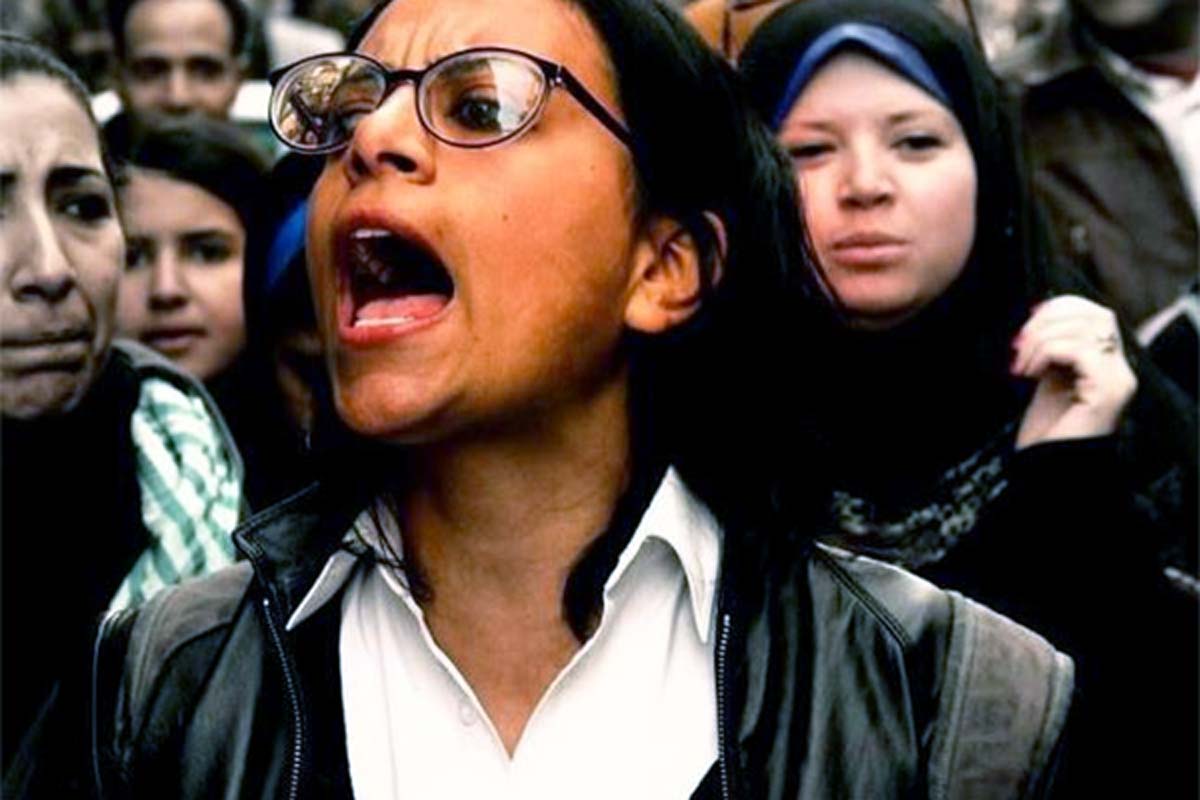
Mahienour El Massry is one of the Egyptian left’s most beloved figures due to her intersectional activism, from women’s and workers’ rights, all the way to Syrian refugees and environmental and climate justice awareness. The Alexandrian human rights lawyer has been a stalwart advocate of social, political and judicial reform since the early 2000s.
She was among the first activists to speak out about the extrajudicial killing of Khaled Saeed whose death sparked the January 2011 protests which later ousted former Egyptian President Hosni Mubarak.
Using social media and peaceful protest, El Massry has worked tirelessly to raise awareness about prisoners’ rights, police brutality and extrajudicial punishment under Mubarak and his successor Mohamed Morsi. She is also a vocal critic of current Egyptian President Abdel Fattah Al Sisi.
Her activism has cost her dearly. El Massry has been the target of arbitrary arrests due to her prominence and visibility as an activist. In February 2015, she was sentenced to one year and three months in prison for protesting in solidarity with lawyers who were detained and allegedly tortured in a police station in Alexandria.
In 2016, she was among the leading voices to oppose the cession of the Tiran and Sanafir Islands to Saudi Arabia. As a result of this, she was detained and charged with participating in an unauthorized protest, but was later acquitted. She was arrested again last year in connection to the anti-Sisi protests of September 2019.
Maya Morsy
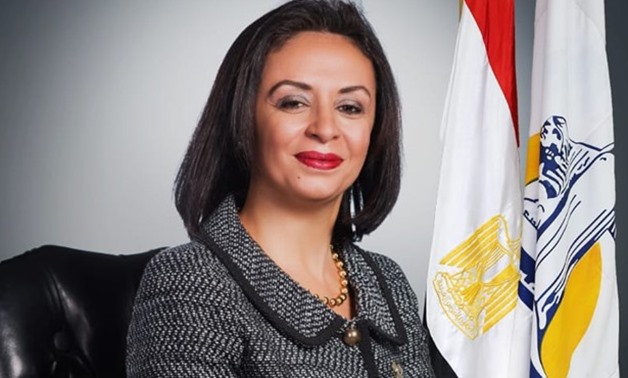
A devoted defender of women’s rights across the Arab and Muslim world, Maya Morsy has been working to further the cause of gender equality in Egypt and across the region since the late 1990s.
In 2016, she became the youngest person to ever be elected President of the National Council for Women (NCW), before which she served as the Regional Advisor on Gender Policies and Programs at the United Nations Development Programme’s (UNDP) in the Arab States in Cairo.
Throughout her career as a public servant and women’s rights advocate, Morsy also served as the head of United Nations’ Fund for Women (UNIFEM) in Egypt. In 1998, she worked with Egypt’s Ministry of Education on educational projects and initiatives designed to empower female students.
Under her leadership, the NCW took a more active role in public life. In addition to the council’s advisory and policy development and planning role, Morsy’s NCW cemented its image as one of the country’s few feminist strongholds by publicly weighing in on cultural issues and the biased portrayal of women in Egyptian media.
Earlier this year, the NCW led the charge against gender-based violence by publicly condemning Tameem Younis’ controversial song Salmonella, which was widely criticized for glorifying violence against women, and called on tech giant Google to stop promoting it, which led to Facebook labelling the music video as “cruel or insensitive content.”
Similarly, the NCW lodged a formal complaint against TV show host Tamer Amin over sexist comments he made during an interview with Olympic swimmer, politician and gynecologist Rania Elwani last year.
Ramy Kamel
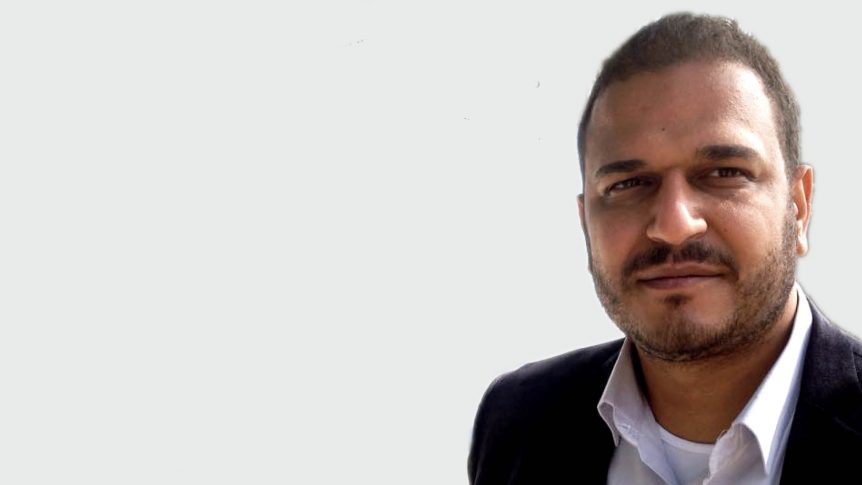
Ramy Kamel is a prominent Coptic rights and pro-democracy activist. He has been a strong advocate of freedom of conscience and religion in Egypt and equality before the law for all Egyptians and has worked to raise awareness about urban housing.
Kamel has worked to make Coptic rights and the fight for equality for the country’s religious minorities a central issue of Egypt’s progressive politics.
He founded the Maspero Youth Union (MYU) shortly after the events of the 9th of October, 2011, which left over 20 Coptic Christians killed outside Maspero, the state media agency, while protesting attacks against churches.
The MYU became the first big-tent movement for civil rights activism and advocacy for Egypt’s Coptic Christians. The group helped unify Coptic voices and amplify the broader demands of the January 2011 protest movement.
MYU members were also instrumental to the success of the Tamarrud movement, which sparked the June 30th protests and called for early elections under Islamist President Mohamed Morsi.
The organization has also registered its solidarity with the April 6 Movement and the Revolutionary Socialists under the current regime.
Kamel and other Coptic rights activists have helped challenge what they believe to be a false narrative of religious unity and coexistence touted by the state and the country’s religious institutions—namely Al Azhar and the Coptic Orthodox Church of Alexandria.
Last November, security forces arrested Kamel on terrorism-related charges. According to the Tahrir Institute, “he had been working with lawyers, activists, and religious leaders to track and document sectarian incidents in Upper Egypt.”
His arrest, as well as that of Coptic activist Andrew Nasser on similar charges, have prompted outrage in Egypt’s human rights community. Similarly, many within the Coptic community have called on Pope Tawadros II to show public support for Coptic rights activists and icons.
Fatma Emam Sakory
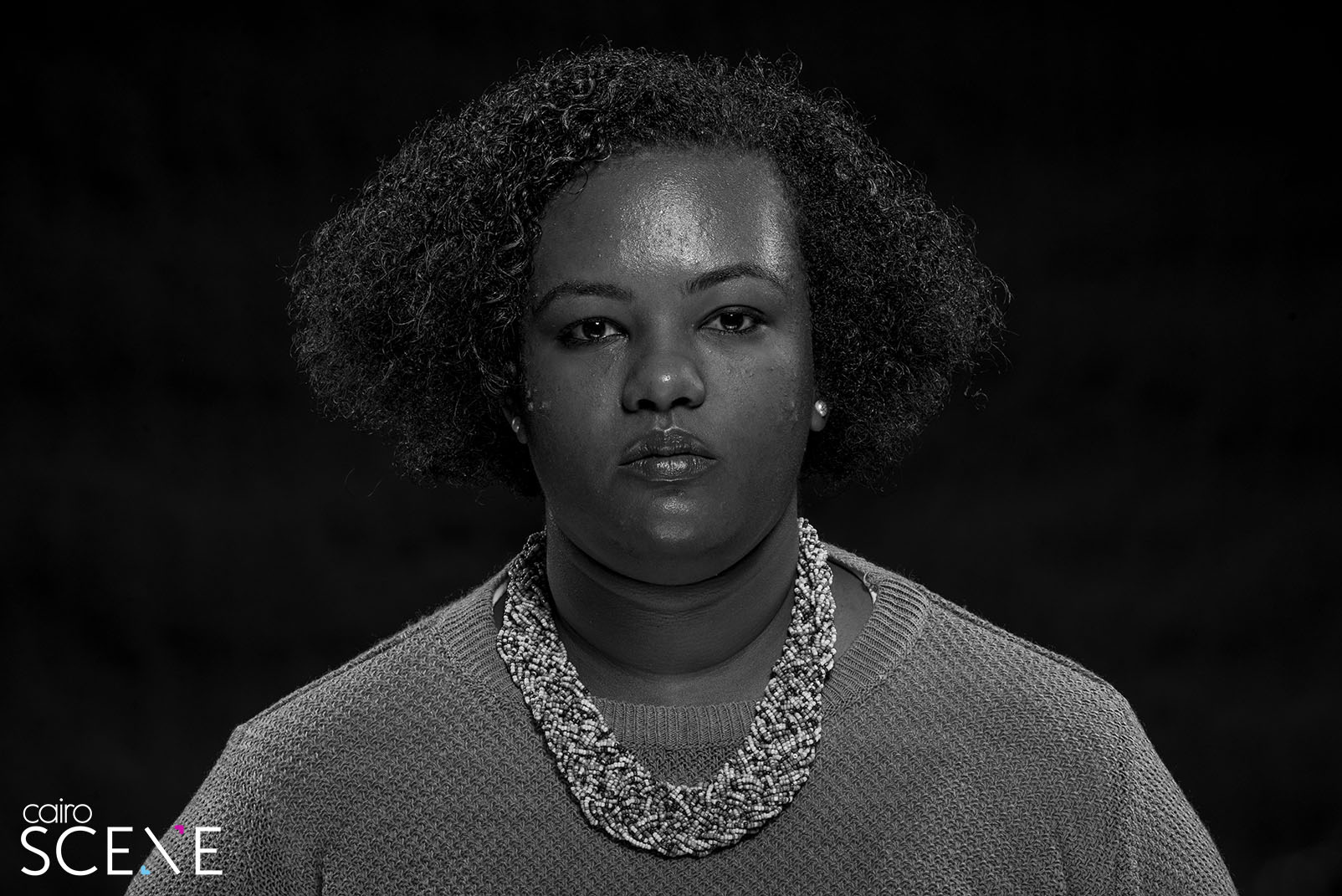
One of Egypt’s most prominent Nubian rights activists, Fatma Emam Sakory has fought for political, social and cultural reform in Egypt since the 2011 revolt.
She is also a noted feminist researcher and blogger whose work with organizations like Nazra for Feminist Studies, Women Living Under Muslim Laws and the Egyptian Women’s Center for Legal Assistance has helped carve out spaces for the cause of gender equality in Egypt’s progressive left.
In 2013, she worked with Egyptian novelist Haggag Oddoul to codify the Nubian right of return in Egypt’s 2014 constitution, which concerns the dispossession of the community of its historical lands following the construction of the Old Aswan and High dams.
In 2016, the government appropriated historically Nubian lands for military use and a massive development project, seriously undermining the community’s aspirations. In response, Sakory and a number of other civil rights and Nubian rights activists organized the Nubian Return Caravan, a march that set out to stage a sit-in in the village of Forkund. Authorities prevented the protesters from reaching the Nubian village and many were arrested on charges of protesting without a permit and inciting violence.
And although the promise of return still eludes Egypt’s Nubians, it is thanks to activists and community leaders like Sakory, Hani Youssef and Ramy Yehia and many more that the plight of the country’s Nubian community is beginning to gain momentum in the national discourse.
Marianne Azer
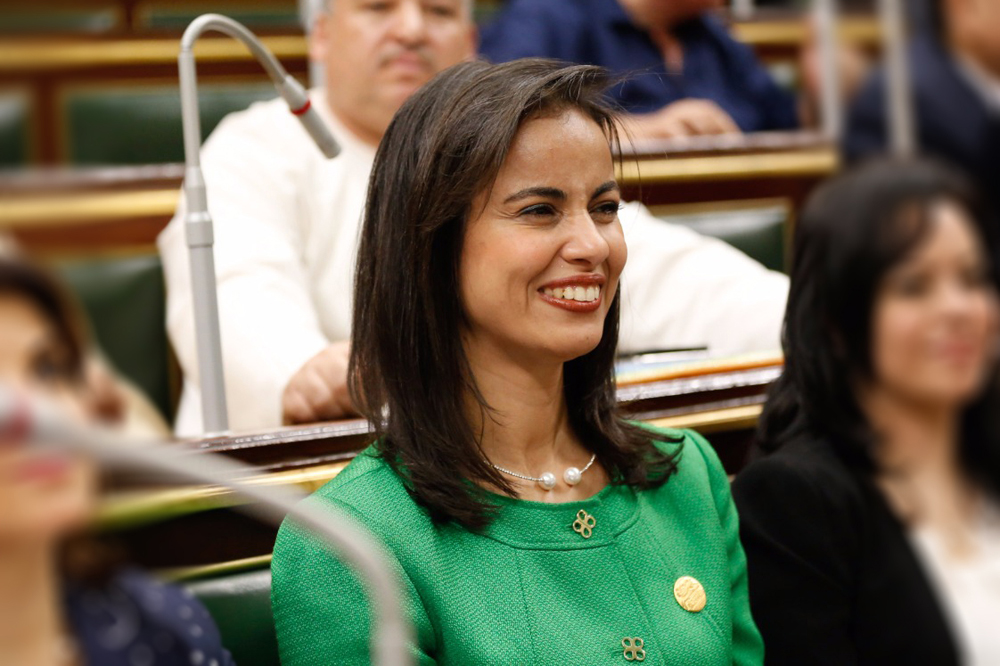
One of the most powerful Egyptian women in STEM, Marianne Azer has enjoyed a remarkable career as a communications engineer and information technology expert.
She became a member of Egypt’s Parliament in 2015 and has previously served as an advisor to the Minister of Communications and Information Technology. Azer is also an eminent scholar, authoring over 70 academic papers and reports and serving as a faculty member at the National Telecommunication Institute, Nile University, Cairo University, the American University in Cairo, the French University in Egypt and the Arab Academy for Science, Technology and Maritime Transport.
Throughout her political career and as a leading global speaker, Azer has worked to raise awareness about data rights and protection, as well as the growing role of technology in politics.
In 2019, she was named Woman of the Decade by the Women Economic Forum (WEF) and became the first female Egyptian MP to speak at the annual Rotary International Convention.
Azer is internationally recognized as a champion of gender equality. She co-founded Arab Women in Computing (Arab WiC), an international conference aimed at supporting, inspiring, and honoring Arab women in STEM and has chaired the International Parliament for Tolerance and Peace (IPTP)’s Women and Youth Committee.
Amr Moussa
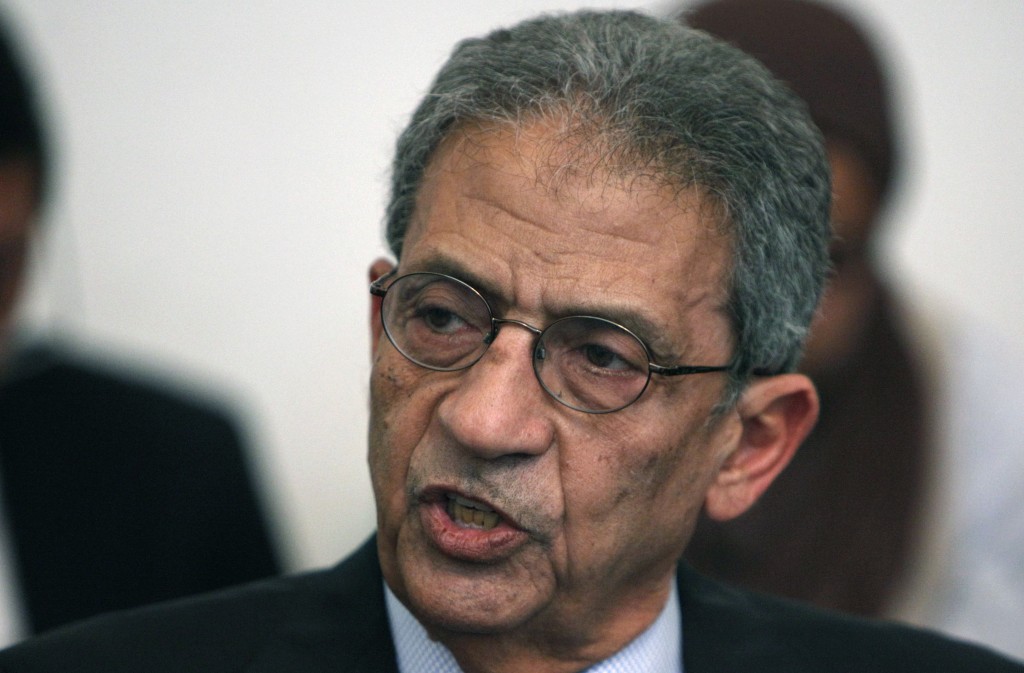
One of Egypt’s most accomplished diplomats, Amr Moussa is a decorated veteran of international affairs who helped shape the country’s foreign policy in the latter half of the 20th century.
He is considered one of the most noted diplomats from the golden age of Egyptian diplomacy, alongside figures like the late UN Secretary General Boutros Boutros Ghali. He was appointed Egypt’s ambassador to the UN, after which he served as Foreign Minister from 1991 to 2001. He went on to take the reins as Secretary General in the Arab League, where he worked to redefine and unify Arab diplomacy before stepping down in 2011.
During his career as a diplomat, Moussa advocated for a bigger African role in the UN and called for structural reform within the organization. He has also been a strong critic of the Israeli occupation and the Gaza blockade and a supporter of Palestinian statehood and independence.
As Arab League Secretary General, he spoke in defense of the Arab Spring and in 2012, he emerged as a centrist political figure who could potentially unite Egyptians.
During his 2012 presidential campaign, he, alongside Abdel Moneim Aboul Fotouh, featured in Egypt’s first ever ‘presidential debate’. However, he was heavily criticized for his ties to the Mubarak regime and eventually lost despite his massive popularity in the months leading up to the 2012 presidential elections and the years leading up to the 2011 uprising.
Following Morsi’s ouster in 2013, he served on the constituent committee, which drafted Egypt’s current constitution, and endorsed current President Sisi’s presidential bid. He continues to call for political reform and openly criticized the 2019 constitutional amendments, which extended presidential term limits to six years.
Alaa Abdel Fattah
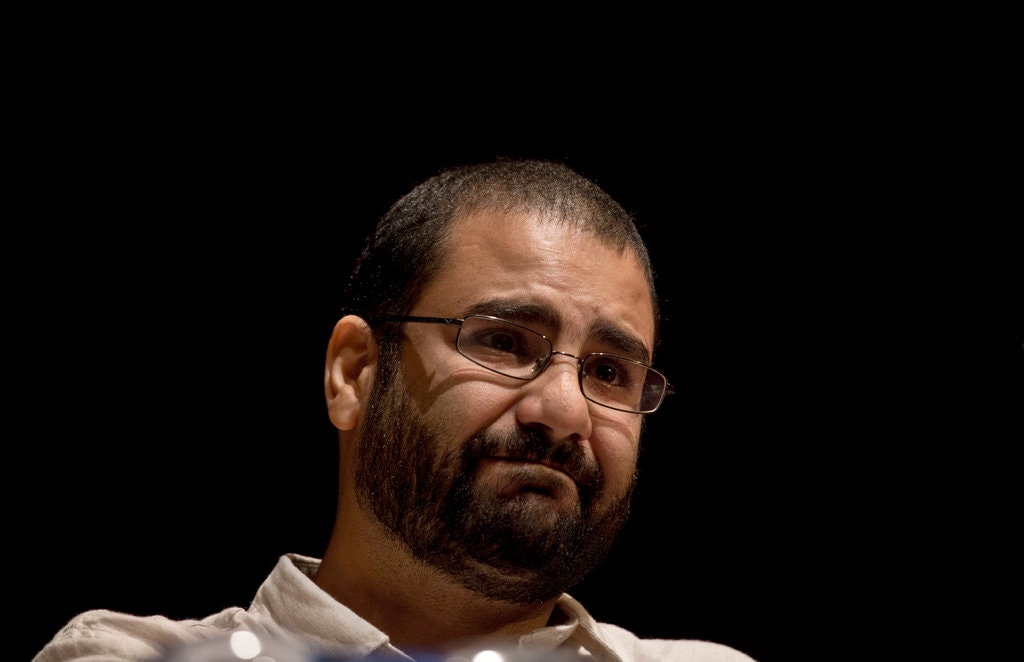
Born on the 18th of November, 1981, Alaa Abdel Fattah comes from a long line of Egyptian civil rights activists. His late father Ahmed Saif was a workers’ rights activist, his mother Laila Soueif is a human rights and women’s rights campaigner, and his two sisters Sanaa and Mona are both political and social activists.
During the early days of the 2011 revolt, he carried the voices of the protesters past former Egyptian President Hosni Mubarak’s internet shutdown to the outside world.
Abdel Fattah is one of the icons of the 2011 uprising and the subsequent protest movement, but his activism dates back to the early 2000s. It was during that period that he co-founded award-winning blog aggregator Manalaa and Omraneya, the first platform of its kind in the region due its editorial policy, which didn’t restrict content of any kind.
Throughout his career as an activist, Abdel Fattah has been subject to politically-motivated arrests. In 2006, he was arrested for protesting for judicial independence and released shortly after. He was detained again in October 2011 for allegedly inciting violence against the military, but the charges were dropped in December of the same year.
In February 2015, he was sentenced to five years in prison for allegedly organizing an unauthorized protest, but was released on parole in March 2019 before being rearrested in September of that same year. According to a statement by his family, no charges were brought against the activist who was transferred to the Tora prison, where he was allegedly beaten and tortured.
Abdel Fattah is one of the most powerful figures in Egypt’s modern political history because he embodies the spirit of its defining moment: the January 25th uprising.
Lina Attalah
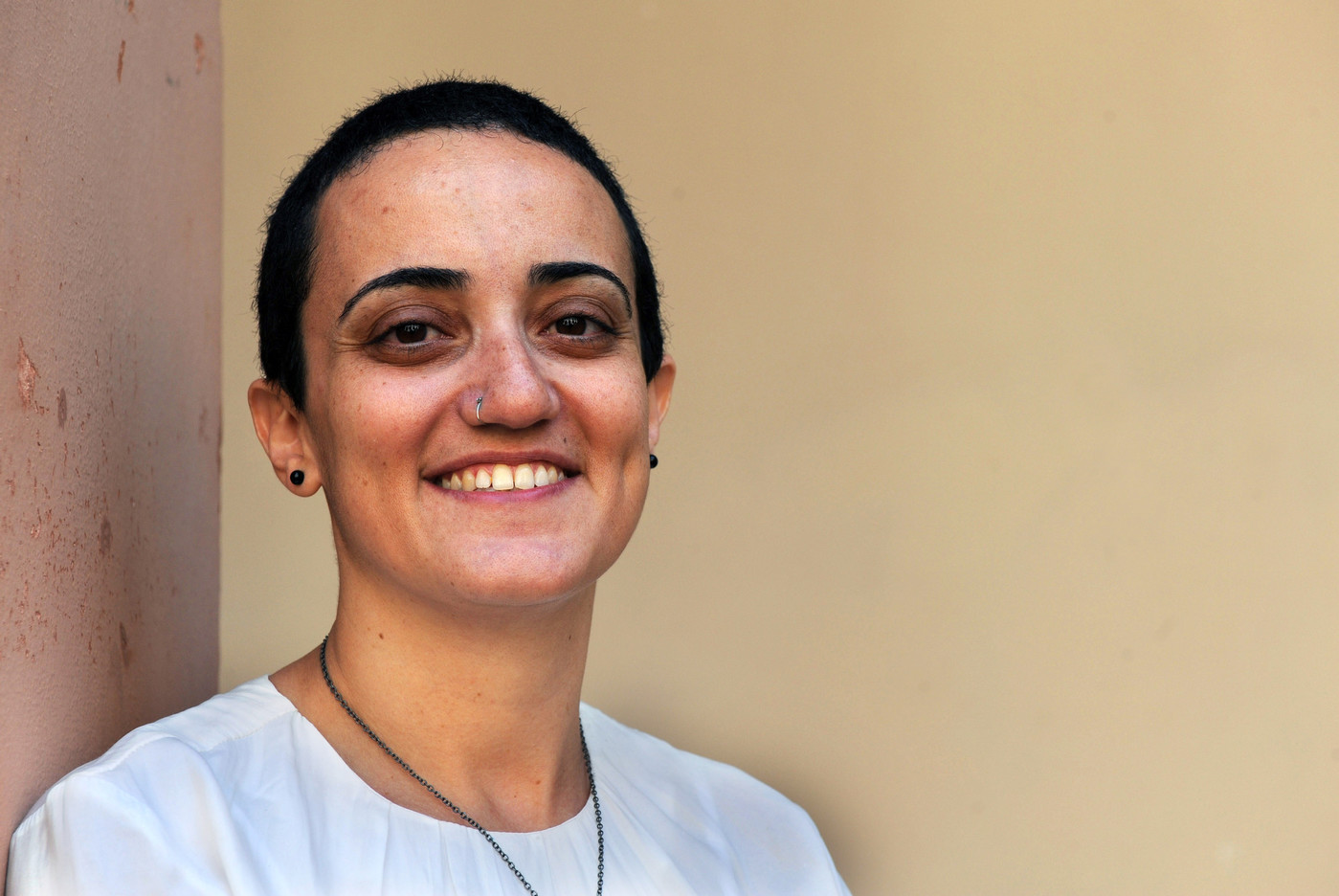
Arguably the most intrepid Egyptian journalist of her time, Lina Attalah is credited for safeguarding the integrity of the country’s written press and fighting to keep press freedom alive amid an unprecedented crackdown on freedom of expression.
She was managing editor of Egypt Independent until 2013. She stepped down amid allegations of internal censorship being exercised by the paper’s corporate management, which shut down Egypt Independent’s print division shortly after.
That same year, Attalah and a group of former Egypt Independent journalists founded Mada Masr, one of the country’s few remaining independent publications. As editor-in-chief and co-founder of Mada Masr, Attalah pioneered a new operating paradigm for free and independent journalism in Egypt, with a successful content services division and a recently launched reader funding program.
Under her leadership, Mada Masr has produced award-winning, landmark journalism and fearless investigative reporting by notable journalists like Egyptian Initiative for Personal Rights (EIPR) founder Hossam Bahgat.
In 2017, Mada Masr was among 60 websites that were blocked for allegedly “supporting terrorism and extremism and spreading fake news,” but the publication ingeniously circumvented the ban through a Tor mirror and other tech solutions that allow its readers in Egypt to access it.
Last November, police raided the Mada Masr office, confiscated the staff’s phones and laptops and briefly detained Attalah and a number of the publication’s journalists, including Shady Zalat. The arrests were believed to be in connection to an investigative report by Mada Masr about President Sisi’s son.
Sahar Nasr
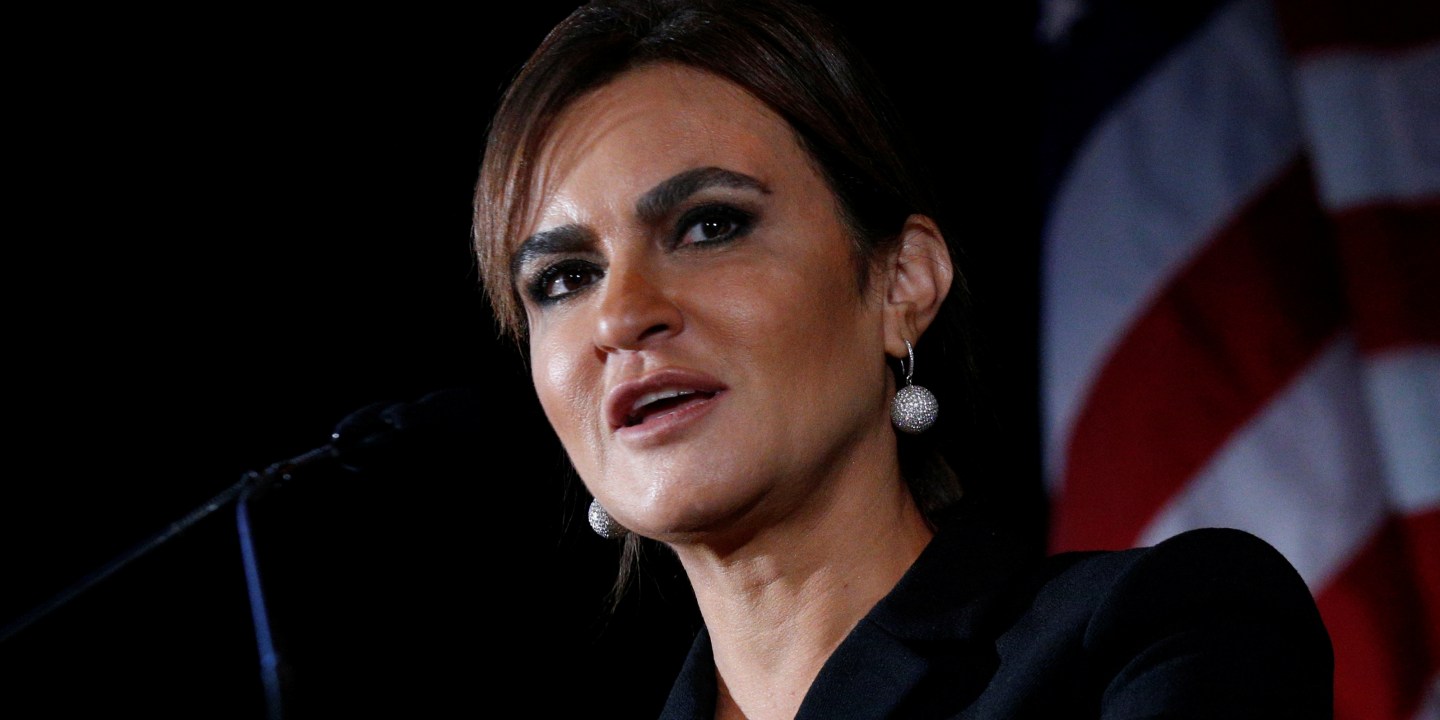
Dr. Sahar Nasr is widely considered one of the great economic minds in Egypt and a key player behind the country’s recent economic shift.
She served as Egypt’s Minister of Investment and International Cooperation from 2015 until 2019, during which she has worked to promote sensible economic reforms, female entrepreneurship, investment and social housing. She also worked to further African economic integration.
Under her leadership, Egypt entered into successful trade deals with Gulf Cooperation Council (GCC) countries. She also boosted the country’s trade ties with African and Asian states and was instrumental in the passing of Egypt’s Investment Law, which incentivizes investment, prohibits nationalization and promotes greater economic liberalization.
She is credited for putting Egypt on the global investment map after the 2012-2013 economic crisis and helping to pull the country’s economy back from the brink of collapse.
An AUC Economics Professor and an Associate Professor at the British University in Egypt, the eminent scholar has authored over 60 research papers, reports and books throughout her career in academia.
As a leading economist in the World Bank, she worked to promote inclusive economic growth and job creation in developing countries and has championed microfinance. She has also served as Egypt’s Governor to the World Bank, the European Bank for Reconstruction and Development, the Arab Bank for Economic Development in Africa and the Asian Infrastructure Investment Bank.
Moahmed El Baradei
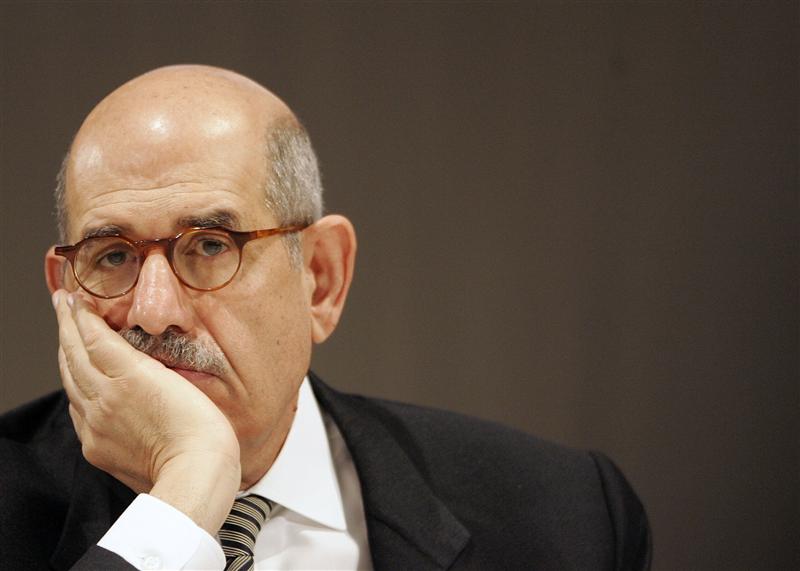
A decorated veteran of international law and diplomacy, El Baradei is recognized the world over for his work to prevent nuclear proliferation during his long tenure as Director General of the International Atomic Energy Agency (IAEA) from 1997 to 2009.
El Baradei’s diplomatic career started in 1964 as a member of Egypt’s Permanent Mission to the United Nations before moving to the IAEA, where he served for the bigger part of his career. The legal scholar then set his sight on Egypt, working with non-state actors to tackle rampant corruption, abuse of power, human rights violations and political stagnation.
The Nobel laureate was a key political figure in the years leading up to the January 25th uprising, which toppled former Egyptian President Hosni Mubarak. He led the National Association for Change (NAC), a big tent movement comprising different elements of the opposition, including the Muslim Brotherhood.
Through the NAC, El Baradei set the tone for Egypt’s progressive political discourse. He galvanized support for Egypt’s opposition through initiatives like the Kefaya (Enough!) Movement, which enjoyed mainstream appeal for its activism against economic inequality, nepotism and corruption under Mubarak.
During the first days of the 2011 revolt, El Baradei was under house arrest, but in the months and years following Mubarak’s ouster, he resumed his advocacy on behalf of Egypt’s most vulnerable. He spoke out against gender inequality and the persecution of Egypt’s religious minorities and was a leading voice in the nation’s debate on transitional justice.
He served as Egypt’s Interim Vice President in 2013 following the June 30th protests that ousted democratically elected Islamist President Mohamed Morsi. A month after accepting the post, El Baradei resigned in protest of the dispersal of the Rabaa sit-in.
Rania Al-Mashat
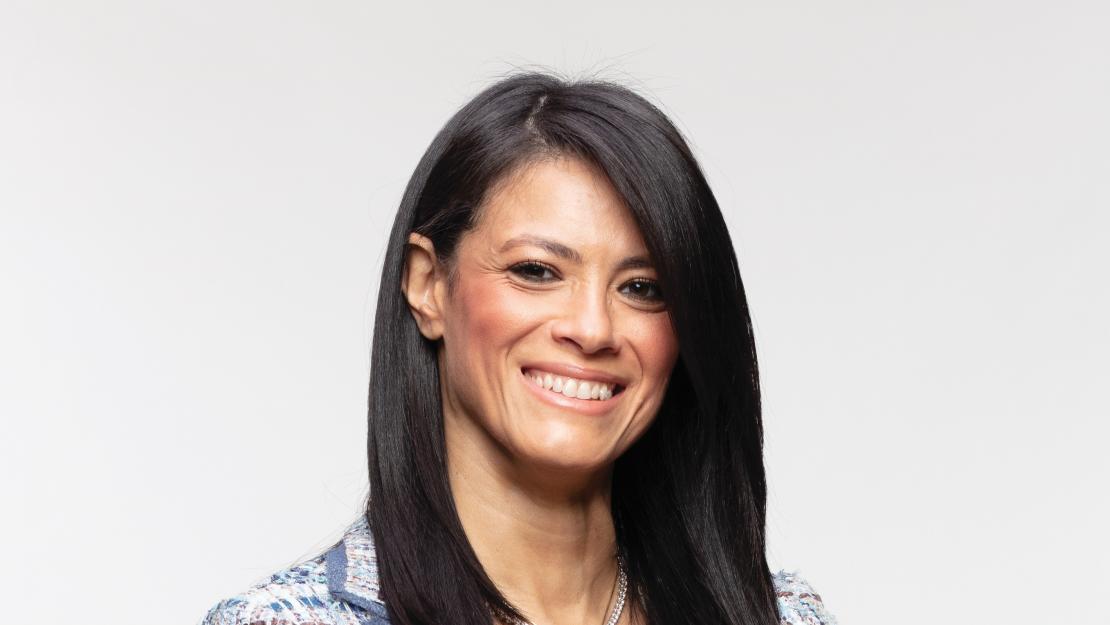
Former Minister of Tourism and newly minted Minister of International Cooperation Dr. Rania Al-Mashat is a world renowned economic expert and one of the most powerful women in Egypt right now.
In 2018, she became the first Egyptian woman to ever assume the position of Minister of Tourism since the government agency’s foundation. During her tenure, she successfully positioned Egypt as a prime tourism destination and has helped revive the sector after a period of political turmoil that brought the industry to its lowest ebb.
Al-Mashat helped rebrand and reinvent the media narrative about post-June 30th Egypt through social media, by depicting the country’s tourism sector in a favorable light on some of the world’s biggest travel platforms.
As Tourism Minister, she also worked to promote green and sustainable tourism in Egypt and safeguard the country’s marine life.
A career economist, Al-Mashat previously served as an adviser to former IMF Chief Economist Maurice Obstfeld and as the Central Bank of Egypt’s (CBE) sub-governor and director of monetary policy, a position that saw her play a major role in shaking up and modernizing the organization.
She was the youngest person to ever work at the IMF when she joined the organization at the age of 25 and was recently appointed Egypt’s Governor to the World Bank, the Arab Bank for Economic Development in Africa, the Arab Fund, and the European Bank for Reconstruction and Development.
Nabila Makram
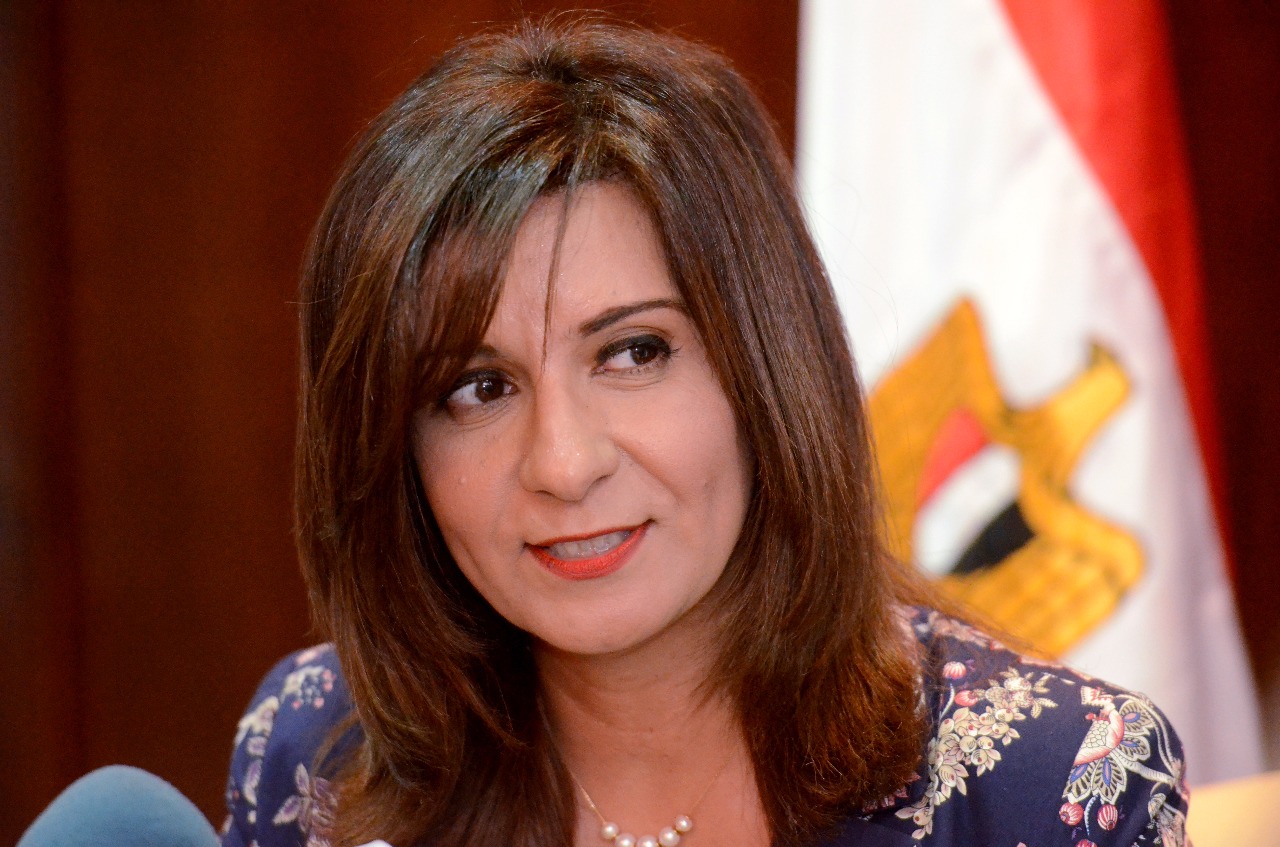
A career diplomat, Minister of Emigration and Egyptian Expatriate Affairs Nabila Makram is slowly emerging as a cultural icon for being one of Egypt’s most outspoken and, at times, controversial, government officials.
Throughout her diplomatic career, Makram served at Egypt’s diplomatic missions to Brazil, Italy, the United Arab Emirates and the US. Following the June 30th uprising, she was instrumental in restoring Egypt’s cultural and diplomatic ties with the UAE, which reportedly suffered under former Egyptian President Mohamed Morsi.
As Minister of Emigration and Egyptian Expatriate Affairs, Makram has been recognized for her advocacy on behalf of and public solidarity with the Egyptian diaspora in the Arab Gulf, where foreigners often lack legal protection from local authorities.
Under her leadership, the ministry has made significant strides in combatting human trafficking. Makram is also credited for using her platform to raise awareness about the plight of Egyptian minors in Rome and publicly accused Italy of exploiting 2500 Egyptian minors to boost its illegal drug and sex trade.
Although she is a widely respected figure throughout Egypt’s diaspora communities, Makram has courted her fair share of controversy at home. Makram has been the target of what many observers have called ‘sexist’ and ‘bigoted’ attacks by the media due to her prominence as a Coptic woman.
In 2015, she was widely criticized for wearing a short-sleeved garment during her swearing-in ceremony. Makram responded to the controversy saying that she wasn’t willing to change who she was simply because she had become a minister. Her statement was praised by Egyptian women’s rights advocates from across the political divide.
Hamdeen Sabbahi
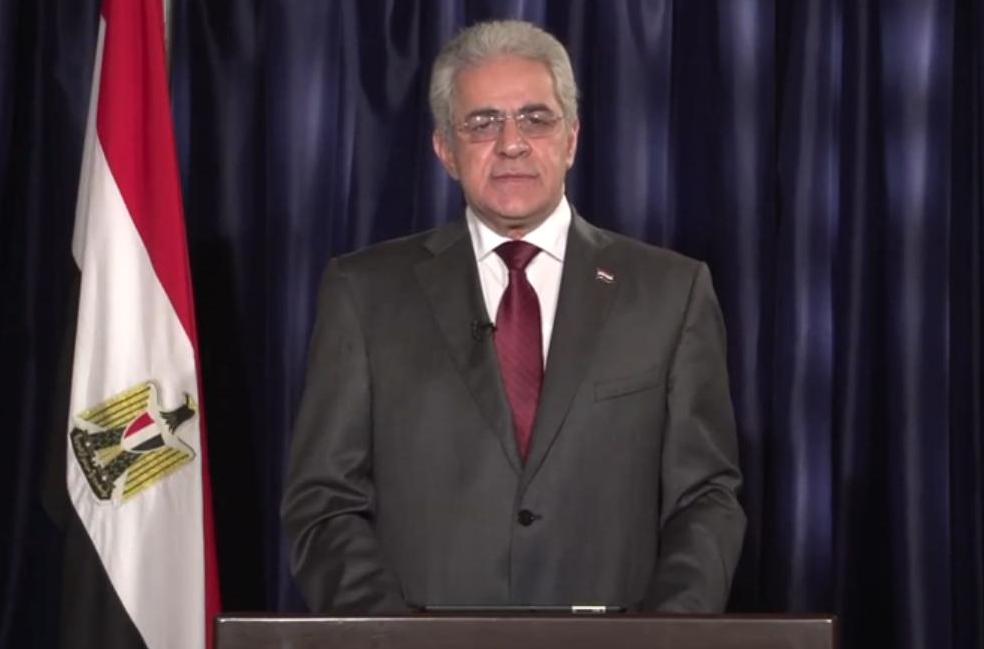
One of the most prolific figures in Egypt’s modern political history, Hamdeen Sabahi has been at the frontlines of the country’s secular opposition movement for the past two decades.
A staunch Nasserist, Sabahi has been a vocal critic of Egypt’s rapprochement with the United States and Israel following the Camp David Accords and a champion of Arab nationalism, socialist and left-leaning economic policies.
Throughout his career, including his years as a student activist, Sabahi has been jailed 17 times under the Anwar Sadat and Hosni Mubarak regimes, which many contend were politically-motivated arrests as a result of his visibility as a political dissident.
In 2003, he became the first member of parliament to be arrested while in office for protesting against allowing US destroyers through the Suez Canal en route to Iraq. He was a leading figure in the Kefaya movement and a member of the NAC, alongside Mohamed El Baradei, Ayman Nour and George Isaac.
He was one of the frontrunners of the 2012 presidential election, winning 21.5 percent of the votes and was considered one of the few viable candidates due to his track record as a vocal supporter of the January 2011 protest movement.
Sabahi resumed his pro-democracy activism under former Egyptian President Mohamed Morsi and supported the Tamarrud movement and the June 30th uprising which ousted the Islamist president, but his popularity and standing as a progressive took a hit as a result of his support of the dispersal of the Rabaa sit-in. He later clarified his position, saying he opposed the use of excessive violence.
He ran for president again in 2014 and lost to current President Abdel Fattah Al Sisi, but continues to be a vocal critic of the regime.
Hala Al Saeed
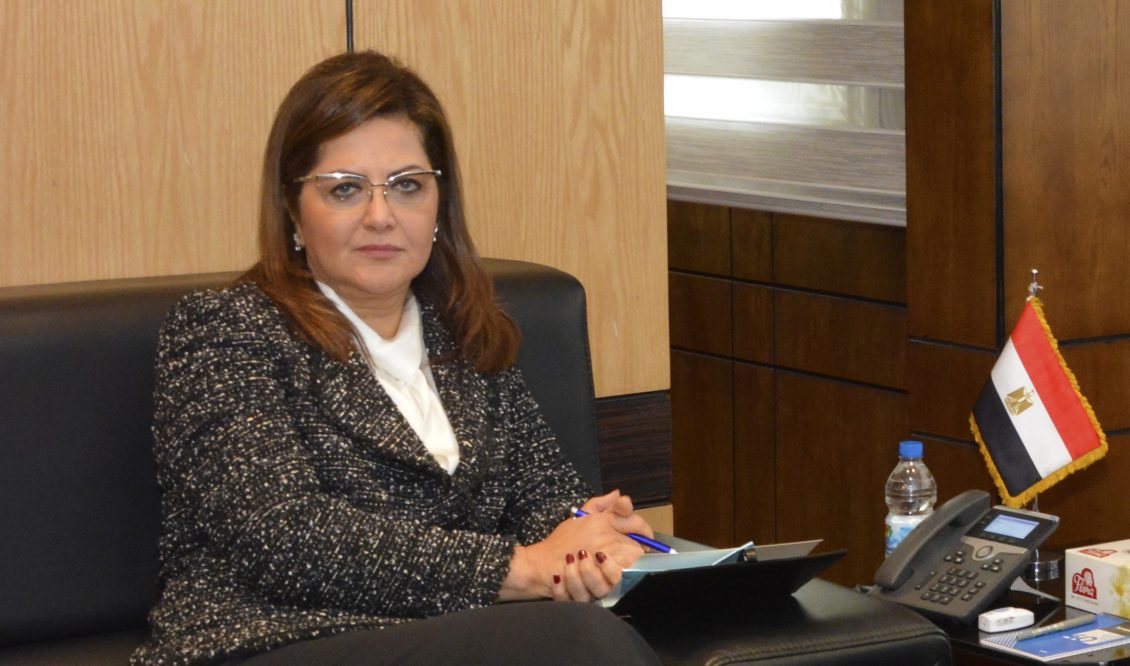
Hala Al Saeed is widely considered one of the most eminent female figures in Egypt’s finance sector. She has served as Egypt’s Minister of Planning since 2017.
A renowned economic scholar and commentator, Al Said has authored more than 25 academic papers and technical reports and has served as head of the Egyptian Banking Institute, the Central Bank of Egypt’s official education and training institution. In 2011, she became the first elected dean of Cairo University’s storied Economics and Political Science Department.
Al Saeed has long championed centrist economic policies. As minister, she has publicly advocated for expanding Egypt’s social security network and raising minimum wage amid subsidy cuts and austerity measures, which have recently come to define Egypt’s economic policies.
Throughout her career, Al Saeed has also worked to eradicate administrative corruption and institutional bureaucracy, as well as raise awareness about banking and financial justice.
The decorated scholar is a pioneering figure in the field of microfinance in Egypt. As minister, she oversaw the allocation of EGP 24 billion to provide financial and banking services to small and medium-sized enterprises, with 50 percent of the state’s microfinance fund going to female entrepreneurs.
Al Saeed’s plan was also praised for its equitable geographic distribution, with over 58 percent of the allotted microfinance funds going to entrepreneurs in Upper Egypt, the country’s poorest and least developed region.



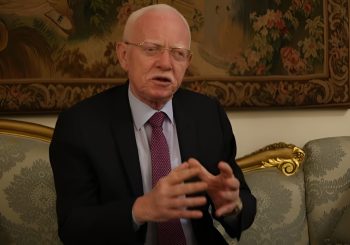
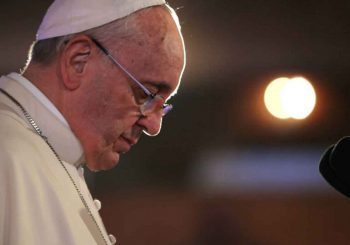
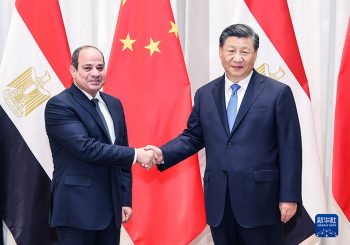
Comment (1)
[…] and documentation of ongoing inequality and attacks against Christians. An Egyptian media outlet named him one of the decade’s “Most Influential Figures in Egyptian […]